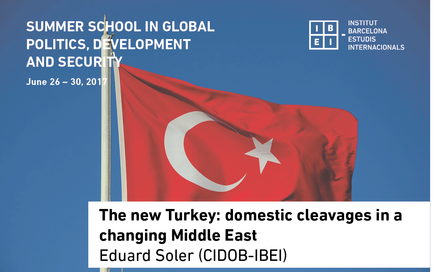The new Turkey: domestic cleavages in a changing Middle East
4 hour course
June 26 – 27 (2.30 – 4.30 pm)
Download the syllabus
Five years ago Turkey was portrayed as an emerging regional leader and a model for democratisation processes. In 2017 this is no longer the case. This intensive course will provide students with the main keys to understand why Turkish society has been increasingly polarised and which effects this has had on the democratic quality of Turkish institutions and its international reputation. It will also look at the impact of major regional events such as the conflict in Syria, the multiplying regional rivalries and the frustrated hopes for change in the Arab world. With those elements, students will be engaged in a discussion on where is Turkey heading, whether there is a shift of axis in its foreign policy, which are the repercussions for relations with the European Union and which kind of influence will Ankara have on the future of the Middle East.
Empirical assessment of patterns of authority in the global governance system shows that there has been a general rise in both political and epistemic authority beyond the nation state over the period since 1945, and that they rose especially steeply in the 1990s. The course offers a conceptualization and an empirical assessment of the authority exercised beyond the nation state and an explanation why the exercise of authority in the global governance system is accompanied by structural legitimation problems.

